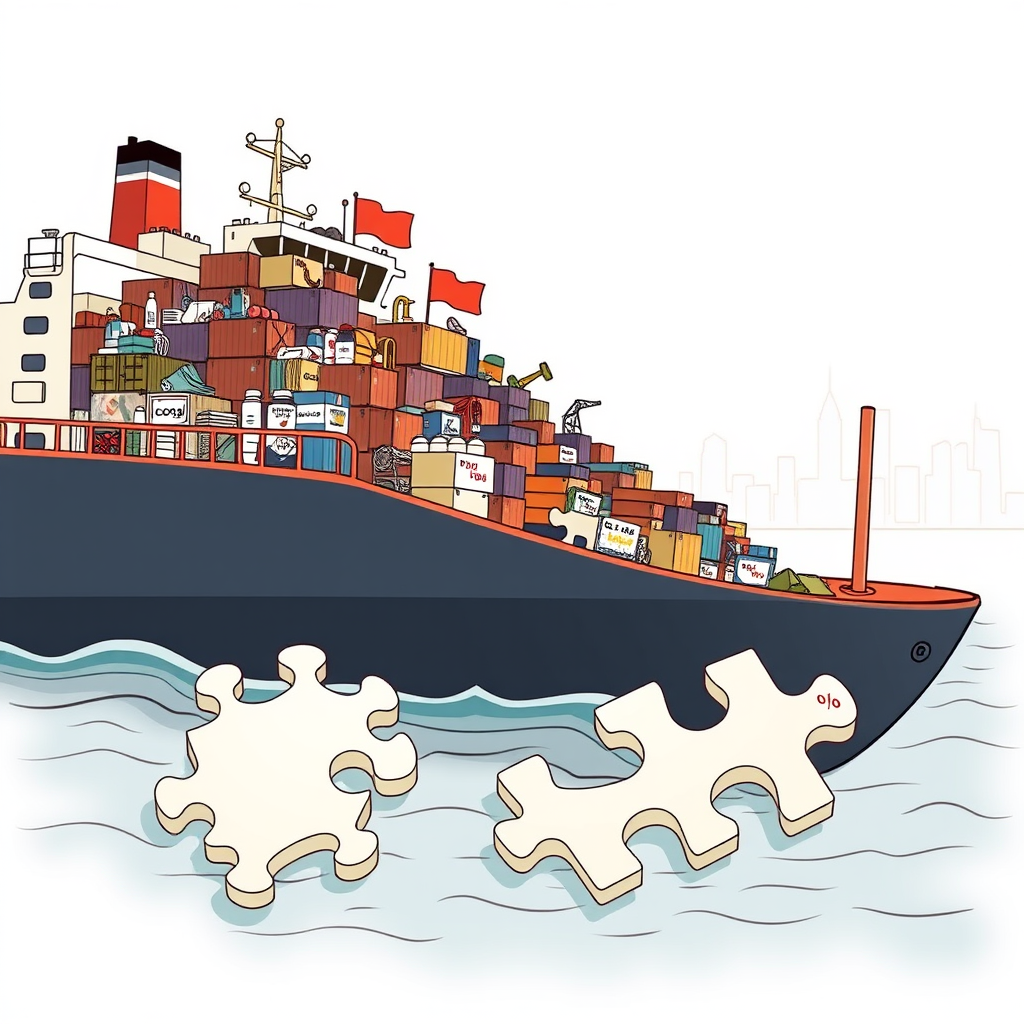Trade War Fuels Stockpiling Frenzy for Firms

Companies are increasingly resorting to stockpiling goods in anticipation of escalating trade tensions fueled by the Trump administration’s unpredictable tariff policies, though experts caution this is a temporary fix with inherent risks. The initial flurry of activity followed the announcement of potential “reciprocal” tariffs in April, prompting businesses to accelerate shipments to the United States even before the policy was officially implemented – and then partially walked back. While President Trump ultimately paused those specific tariffs for 90 days (excluding China), existing levies – including a 10 percent global tariff and 25 percent duties on European steel, aluminum, and cars – remain in place, driving the trend.
French cosmetics giant Clarins provides a clear example, having built up three months of stock – valued at $2 million – and shipping it to the US earlier this year. This isn’t limited to luxury goods. Data reveals a significant jump in exports from several countries. Swiss watch exports to the US rose nearly 14 percent in March, while Ireland – a hub for pharmaceutical firms – saw a staggering 210 percent increase in exports to the US in February, totaling nearly $14.8 billion, with 90 percent comprised of pharmaceutical products and chemical ingredients.
Even companies anticipating restrictions on their ability to export are participating. The Nikkei reported Chinese tech firms are aggressively purchasing billions of dollars worth of AI chips from US-based Nvidia, preempting potential export controls.
Fermob, a French garden furniture manufacturer, began planning for tariffs following the 2016 US presidential election, increasing production in January and February and sending approximately 30 percent of its extra stock to the US. This surge in demand has also benefitted transportation companies like Lufthansa Cargo, which has reported increased shipments to the US in recent weeks.
However, analysts warn that stockpiling is not a sustainable solution. Matt Jochim, a partner at McKinsey, describes it as a “very short-term opportunistic” move, limited by constantly changing tariffs and the practical difficulties of storing goods, particularly in rapidly evolving industries like electronics. “You don’t want to get stuck with inventory of chipsets or devices that are the prior version,” he explained.
Fermob’s CEO, Baptiste Reybier, echoes this sentiment, emphasizing the need for a measured approach. “You have to finance stocks and there is also the risk of not having sent the right product,” he said. While stockpiling can offer a temporary buffer against tariffs, it ultimately shifts risk rather than eliminating it. The current situation highlights the precariousness of global supply chains in an era of escalating trade disputes and the limitations of reactive strategies in the face of unpredictable policy shifts. It’s a band-aid on a much larger wound, offering short-term relief but doing little to address the underlying instability.